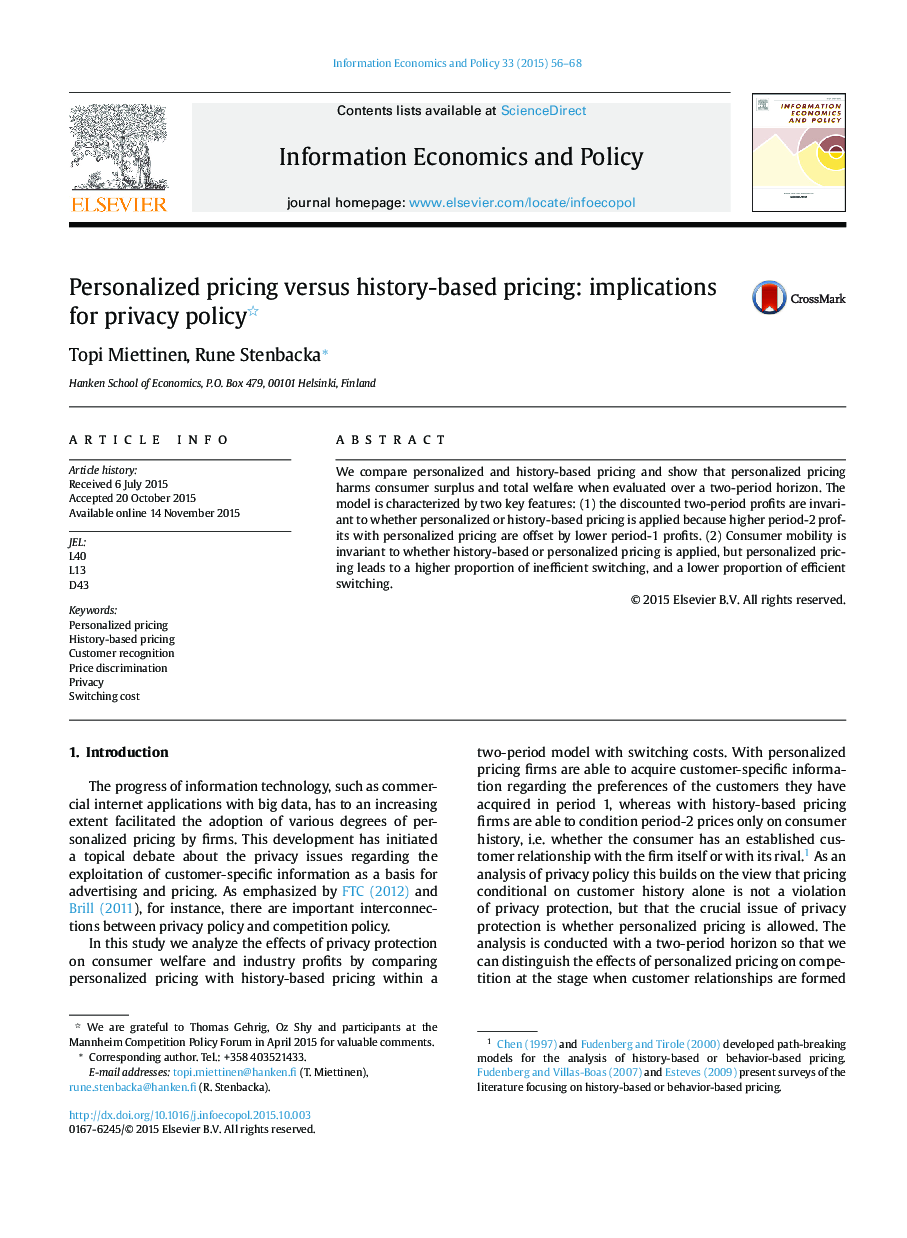| Article ID | Journal | Published Year | Pages | File Type |
|---|---|---|---|---|
| 5075714 | Information Economics and Policy | 2015 | 13 Pages |
â¢Profits are invariant to whether personalized or history-based pricing is applied.â¢Personalized pricing is harmful for consumer surplus and total welfare.â¢Personalized pricing leads to a higher proportion of inefficient switching.â¢With endogenous customer relationships consumers benefit from privacy protection.
We compare personalized and history-based pricing and show that personalized pricing harms consumer surplus and total welfare when evaluated over a two-period horizon. The model is characterized by two key features: (1) the discounted two-period profits are invariant to whether personalized or history-based pricing is applied because higher period-2 profits with personalized pricing are offset by lower period-1 profits. (2) Consumer mobility is invariant to whether history-based or personalized pricing is applied, but personalized pricing leads to a higher proportion of inefficient switching, and a lower proportion of efficient switching.
